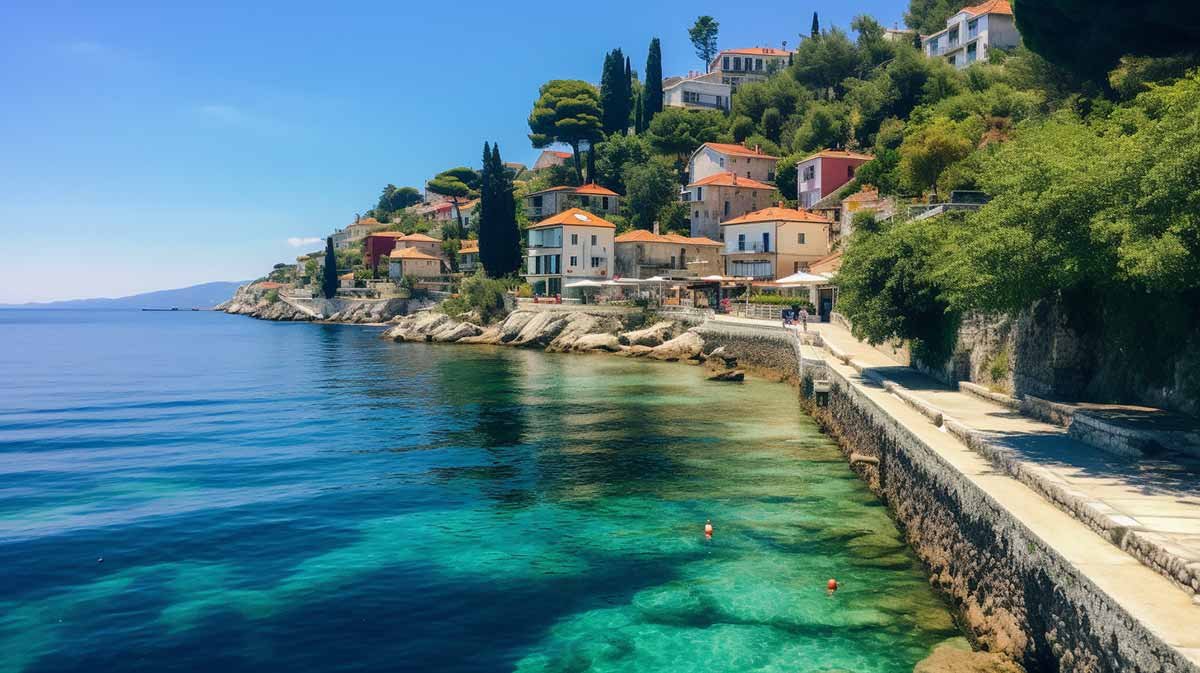
Standard of living in Croatia: comprehensive overview
Croatia, a picturesque country located in Southeastern Europe, is renowned for its stunning coastline, historic cities, and rich cultural heritage. Beyond its beauty, the standard of living in Croatia is a topic of increasing interest, especially as the nation continues its integration into the European Union. Here's a closer look at various factors shaping the quality of life in this Adriatic gem, CE Report reports.
Economic Overview
Croatia’s economy has seen steady growth since joining the European Union in 2013. In 2023, the country adopted the euro as its official currency, further aligning its economy with the EU framework. The GDP per capita has been gradually increasing, driven by sectors such as tourism, information technology, and manufacturing. However, income inequality remains a challenge, with urban areas like Zagreb and Split enjoying significantly higher living standards compared to rural regions.
Cost of Living
The cost of living in Croatia varies depending on location. Cities such as Dubrovnik and Zagreb are more expensive due to their popularity among tourists and expats. Rent and property prices in these areas can be high, but other necessities like food, transportation, and healthcare remain relatively affordable. Smaller towns and villages offer a lower cost of living but may lack some modern amenities.
Employment and Wages
The average monthly net salary in Croatia is approximately €1,000, although this can fluctuate based on industry and location. Tourism, a key pillar of the economy, offers seasonal employment, which can impact job stability for workers in this sector. Croatia also faces a "brain drain" issue, with many young professionals seeking higher wages and better career prospects abroad.
Healthcare and Education
Croatia boasts a universal healthcare system funded primarily through taxes. While the quality of healthcare is generally high, public hospitals can sometimes face issues such as long waiting times and outdated equipment. On the other hand, private healthcare services are more efficient but come with additional costs.
The country also has a robust education system, with mandatory schooling until the age of 15. Croatia’s universities, particularly the University of Zagreb, are well-regarded in the region, although research funding remains limited compared to Western European standards.
Housing and Infrastructure
Housing affordability is a mixed bag in Croatia. While rural areas and smaller towns offer budget-friendly options, urban centers and coastal cities face rising property prices due to high demand from both locals and international buyers. Infrastructure, particularly in terms of roads and public transport, is well-developed in urban areas but can be underfunded in rural regions.
Cultural and Environmental Quality of Life
Croatia’s cultural richness significantly enhances its standard of living. The country is home to numerous UNESCO World Heritage Sites, vibrant festivals, and a strong tradition of music, arts, and cuisine. Its Mediterranean climate, with mild winters and sunny summers, adds to the appeal of living in Croatia.
Environmental quality is another strong point, with clean beaches, national parks, and sustainable tourism initiatives helping preserve the natural beauty of the country.
Challenges and Opportunities
Despite its many advantages, Croatia faces challenges such as an aging population, regional disparities, and high youth unemployment rates. The government is actively working to address these issues through economic reforms, investment in technology, and programs to attract foreign investment.
Conclusion
The standard of living in Croatia is a blend of modern comforts and traditional charm. While the country offers a high quality of life for many, disparities between urban and rural areas persist. With ongoing economic growth and integration into European markets, Croatia’s future holds significant promise for both residents and expats.























